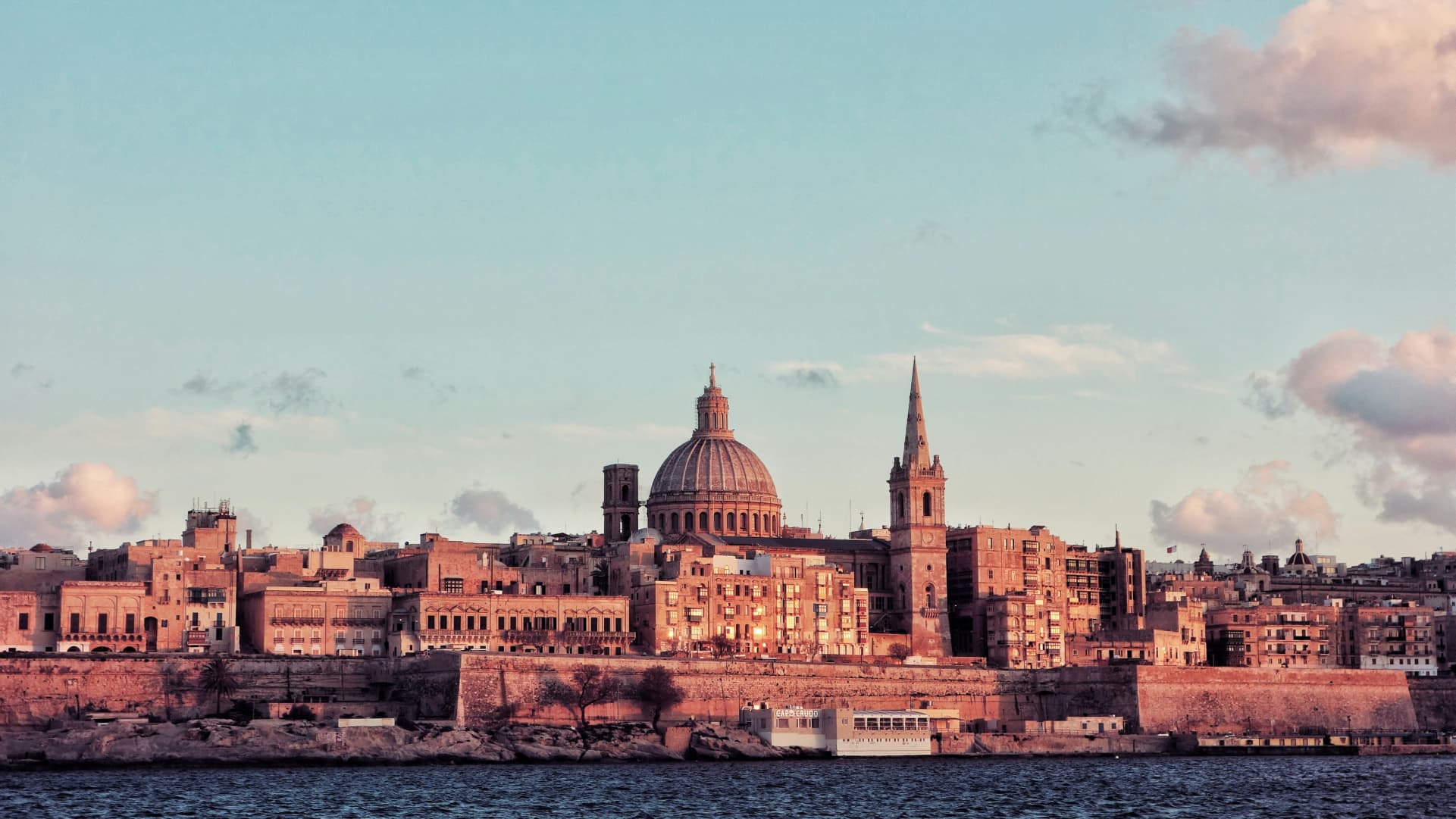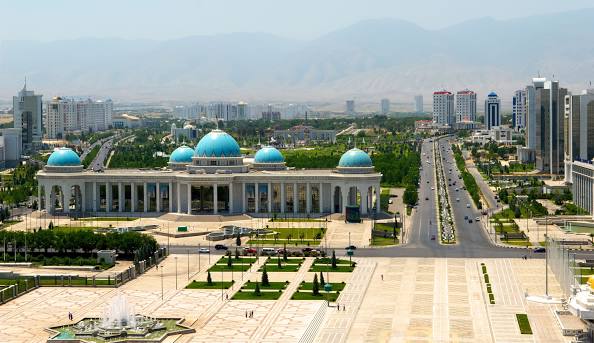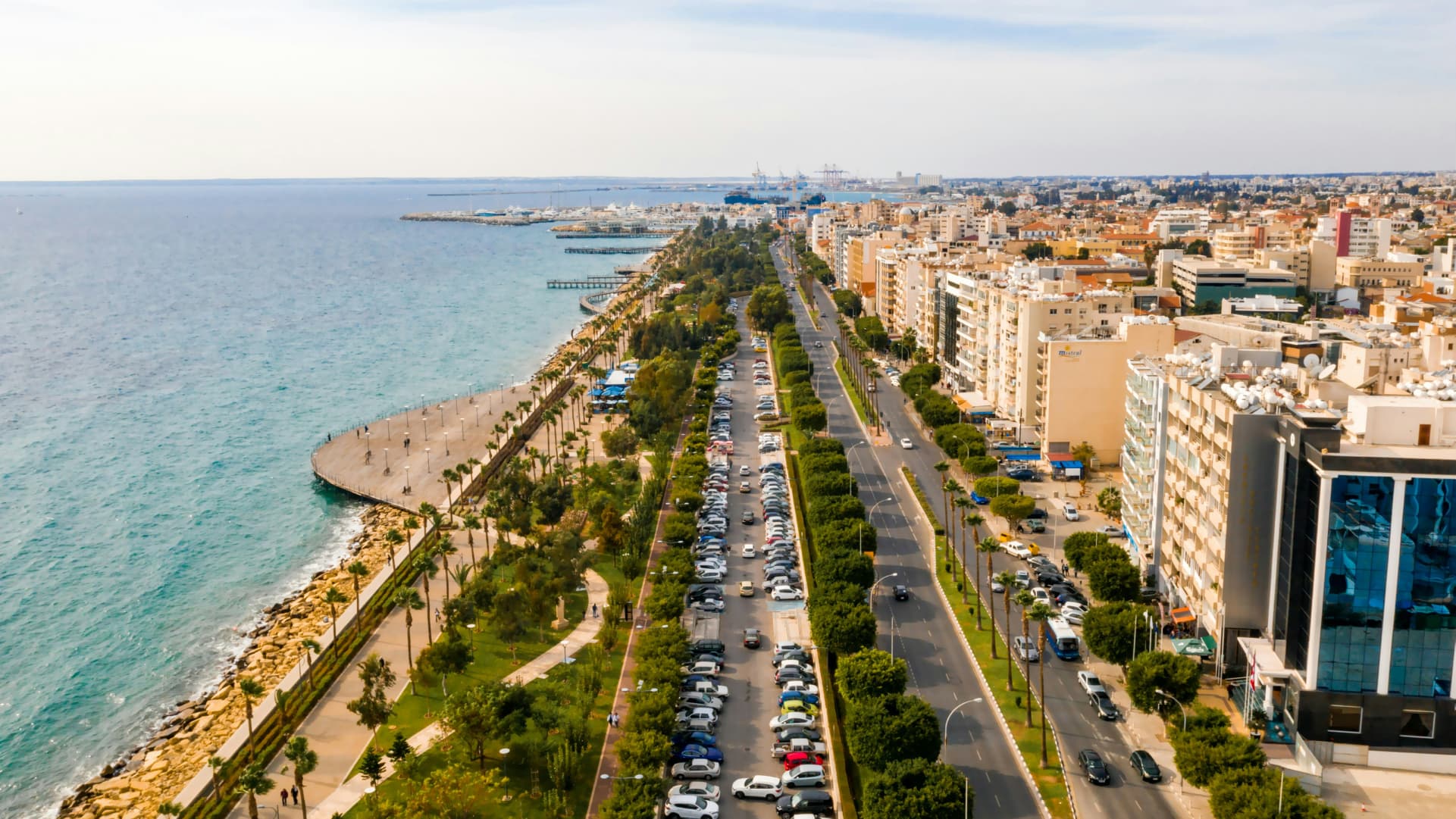“Malta’s tax system is designed to support families who think globally and value stability.”
“Malta’s tax system is designed to support families who think globally and value stability.”
“Malta’s tax system is designed to support families who think globally and value stability.”

Introduction
With the UK’s remittance-based tax regime repealed in April 2025, families once anchored in London are re-evaluating where they can preserve privacy, protect their legacy, and manage tax exposure with confidence. Malta, a small island with a surprisingly expansive legal and financial toolkit, has emerged as a compelling alternative.
Tax Residency on Your Terms
Malta’s appeal goes beyond its tax benefits. The island offers two standout pathways for third-country nationals: the Global Residence Programme (GRP) and the Malta Permanent Residence Programme (MPRP).
The GRP offers individuals the opportunity to establish residence in Malta while enjoying a flat 15% tax rate on income remitted to Malta with a modest annual minimum tax requirement. The Programme enables beneficiaries to reside in Malta without the need to spend the entire year there, as long as they do not spend more than 183 days in another jurisdiction within a calendar year.
The MPRP takes it a step further, offering permanent residence through a one-time contribution and qualifying property commitment - all without a minimum stay requirement or physical presence requirement. While the GRP offers tax residency with a favourable flat rate on remitted income, the MPRP provides a straightforward path to permanent residence in Malta with no ongoing tax obligations. It’s an ideal solution for non-EU families looking to secure long-term residence rights while maintaining full flexibility over their global tax position.
Combined with EU and Schengen access, an English-speaking legal system, and high standards in education and healthcare, Malta stands out as lifestyle-compatible.
Where Wealth Stays Mobile
In a world where financial footprints span across continents, Malta’s remittance-based tax system offers a rare simplicity and sovereignty. Under this regime, foreign-sourced income is only taxed if remitted to Malta, while foreign capital gains remain fully tax-exempt, even when brought in. This gives internationally connected families the freedom to keep their earnings and investments abroad without triggering Maltese tax, provided they manage the transfers effectively.
As other countries tighten their rules, Malta stands out as a reputable EU jurisdiction offering long-term stability, predictability, and a globally minded tax framework, making it a compelling choice for internationally connected families.
A Place Where Wealth Grows With the Family
For high-net-worth and ultra-high-net-worth individuals, Malta offers a favorable tax rate alongside a framework for multigenerational wealth planning that emphasizes stability, simplicity, and legal clarity. With no estate tax, gift tax, wealth tax, or formal inheritance tax, Malta allows families to preserve and transfer wealth efficiently, free from the erosion often seen in other jurisdictions.
This predictability supports strategic structuring of global income and assets through vehicles like trusts, foundations, or holding companies, all of which are well recognized under Maltese law. The result is a jurisdiction where thoughtful planning drives long-term benefit.
In 2025, Malta further reinforced its appeal with the creation of a Large Taxpayer Office, offering HNWIs and UHNWIs direct access to a single point of contact within the Malta Tax and Customs Administration. This supports faster resolution of tax matters and a more personalized, professional engagement with the authorities.
This way, Malta provides a system that favours those who plan, take proper advice, and structure their affairs responsibly, without relying on aggressive tax strategies.
EU Access, Without the Headache
For families whose lives and assets span continents, navigating cross-border tax can be a minefield. Malta, through a mix of national foresight and EU alignment, offers rare clarity. Its extensive double taxation treaty network ensures income isn't taxed twice, while unilateral relief mechanisms further reduce exposure to juridical and economic double taxation.
Layered onto this is the strength of Malta’s EU membership. Through access to harmonized frameworks like the EU tax acquis and the newly adopted FASTER Directive that is set to streamline withholding tax relief on dividends and interest, Malta creates a fair playing field for cross-border investors. Add in tools like the EU’s Dispute Resolution Directive, and families gain a reliable path to resolve tax conflicts with minimal friction.
Malta’s tax system is designed to support families who think globally and value stability. For the internationally mobile, it is a bridge between jurisdictions, underpinned by fairness and transparency.
Why Malta Is Becoming a Home for Family Offices
Thinking beyond the next quarter and into the next generation reveals Malta as a destination with a compelling blend of structure, support, and substance. Its legal ecosystem is well-equipped for establishing trusts, foundations, and holding vehicles - core tools for modern family office planning. While compliance standards have become more robust, they are far from burdensome, and many see them as part of building a lasting, resilient framework.
What truly sets Malta apart is its targeted support for family-run enterprises. Through its legally backed Family Business Office, Malta offers practical incentives such as reduced stamp duty and cash grants. This helps smooth the path through succession, governance, and long-term planning.
For families seeking a jurisdiction that respects legacy while enabling evolution, Malta is proving to be a reliable partner.
The A to Z of Setting Up a Family Office in Malta
Establishing a family office in Malta is less about checking boxes and more about crafting a tailored ecosystem. The journey starts by defining what the office will do, whether it’s simply holding assets or managing investments across generations. Once that vision is clear, families work closely with legal advisors to choose the right structure, which is often a mix of companies, trusts, or foundations. Each of them is selected to match long-term goals around governance and continuity.
Malta’s flexibility allows for these structures to sit neatly under a single umbrella, with clear governance protocols, appointed directors or trustees, and professional advisors guiding compliance from day one. While regulatory scrutiny has grown, it’s seen as a sign of maturity, not complication. Ensuring an appropriate level of substance (such as having a physical office, local decision makers, and core functions exercised in Malta) further reinforces the integrity and credibility of the family office set up. With proper planning, the setup process is straightforward, supported by a strong local network and a system built to handle complexity without friction.
Typical Setup Process:
- Define the purpose and scope of the family office (single or multi-family, passive or investment-led).
- Draft a family charter to establish values, roles, and long-term objectives.
- Choose the legal structure (trust, foundation, company, or a hybrid setup) based on specific needs.
- Appoint key roles such as directors, trustees, or administrators, and outline governance protocols.
- Engage local professionals in legal, tax, and accounting to ensure full regulatory compliance.
- Secure office space and infrastructure, including systems for reporting, risk management, and operations.
- Ensure alignment with Malta’s substance and governance standards
How Malta Helps Families Shape Their Legacy
When it comes to managing wealth that spans generations and borders, families in Malta lean on time-tested, flexible structures - each chosen with intention.
Foundations are a go-to for those focused on succession planning and asset protection. With clearly defined statutes and an appointed administrator, they allow families to separate ownership from control while preserving long-term goals.
Trusts, especially familiar to those from common law backgrounds, offer another layer of adaptability. Backed by Malta’s robust trustee framework, they provide a discreet, cross-border vehicle for holding assets, and, when structured carefully, can achieve tax neutrality.
When it comes to managing business interests or international investments, Maltese holding companies stand out for their tax efficiency, enabled by a full imputation system and participation exemption regime. With no withholding tax on outbound dividends, these entities help preserve value without unnecessary friction.
Where Family Offices Find the Right Partners
As family offices evolve from quiet custodians of wealth into dynamic engines of legacy and purpose, Malta has kept pace, quietly building a professional services ecosystem ready to meet them where they are. Legal and tax advisors, investment consultants, and trust specialists are not only deeply familiar with Malta’s frameworks but increasingly fluent in the needs of globally mobile, multigenerational families.
The jurisdiction’s legal foundations, drawing from both civil and common law traditions, support nuanced, tailor-made advice. And because family offices that serve only the family are largely exempt from licensing with the MFSA, the path to set up remains straightforward and efficient. Complementary structures like Professional Investor Funds (PIFs) and Notified PIFs (NPIFs) give families flexibility for investment management and co-investment strategies.
Add to this a tax environment that respects the purpose behind transfers, especially those tied to succession or philanthropy, and Malta begins to look less like a jurisdiction and more like an ecosystem. One that enables families to operate with clarity, act with intention, and build structures that last.

About the Author
Dr. Giannella Barbieri LL.D is the founder of GB Legal, a boutique law firm in Malta dedicated to providing tailored legal services across corporate, commercial, tax, employment, and immigration law. With a wealth of experience gained from leading a legal team at a prominent mid-tier firm, Dr. Barbieri has advised clients on complex matters such as mergers and acquisitions, company restructuring, regulatory compliance, and cross-border transactions. Known for her practical, client-focused approach, she is committed to delivering solutions that genuinely meet each client’s unique needs. Beyond her legal expertise, Dr. Barbieri is passionate about empowering individuals and businesses to succeed, and she actively advocates for young women in business, encouraging them to pursue their ambitions with confidence and determination.
Introduction
With the UK’s remittance-based tax regime repealed in April 2025, families once anchored in London are re-evaluating where they can preserve privacy, protect their legacy, and manage tax exposure with confidence. Malta, a small island with a surprisingly expansive legal and financial toolkit, has emerged as a compelling alternative.
Tax Residency on Your Terms
Malta’s appeal goes beyond its tax benefits. The island offers two standout pathways for third-country nationals: the Global Residence Programme (GRP) and the Malta Permanent Residence Programme (MPRP).
The GRP offers individuals the opportunity to establish residence in Malta while enjoying a flat 15% tax rate on income remitted to Malta with a modest annual minimum tax requirement. The Programme enables beneficiaries to reside in Malta without the need to spend the entire year there, as long as they do not spend more than 183 days in another jurisdiction within a calendar year.
The MPRP takes it a step further, offering permanent residence through a one-time contribution and qualifying property commitment - all without a minimum stay requirement or physical presence requirement. While the GRP offers tax residency with a favourable flat rate on remitted income, the MPRP provides a straightforward path to permanent residence in Malta with no ongoing tax obligations. It’s an ideal solution for non-EU families looking to secure long-term residence rights while maintaining full flexibility over their global tax position.
Combined with EU and Schengen access, an English-speaking legal system, and high standards in education and healthcare, Malta stands out as lifestyle-compatible.
Where Wealth Stays Mobile
In a world where financial footprints span across continents, Malta’s remittance-based tax system offers a rare simplicity and sovereignty. Under this regime, foreign-sourced income is only taxed if remitted to Malta, while foreign capital gains remain fully tax-exempt, even when brought in. This gives internationally connected families the freedom to keep their earnings and investments abroad without triggering Maltese tax, provided they manage the transfers effectively.
As other countries tighten their rules, Malta stands out as a reputable EU jurisdiction offering long-term stability, predictability, and a globally minded tax framework, making it a compelling choice for internationally connected families.
A Place Where Wealth Grows With the Family
For high-net-worth and ultra-high-net-worth individuals, Malta offers a favorable tax rate alongside a framework for multigenerational wealth planning that emphasizes stability, simplicity, and legal clarity. With no estate tax, gift tax, wealth tax, or formal inheritance tax, Malta allows families to preserve and transfer wealth efficiently, free from the erosion often seen in other jurisdictions.
This predictability supports strategic structuring of global income and assets through vehicles like trusts, foundations, or holding companies, all of which are well recognized under Maltese law. The result is a jurisdiction where thoughtful planning drives long-term benefit.
In 2025, Malta further reinforced its appeal with the creation of a Large Taxpayer Office, offering HNWIs and UHNWIs direct access to a single point of contact within the Malta Tax and Customs Administration. This supports faster resolution of tax matters and a more personalized, professional engagement with the authorities.
This way, Malta provides a system that favours those who plan, take proper advice, and structure their affairs responsibly, without relying on aggressive tax strategies.
EU Access, Without the Headache
For families whose lives and assets span continents, navigating cross-border tax can be a minefield. Malta, through a mix of national foresight and EU alignment, offers rare clarity. Its extensive double taxation treaty network ensures income isn't taxed twice, while unilateral relief mechanisms further reduce exposure to juridical and economic double taxation.
Layered onto this is the strength of Malta’s EU membership. Through access to harmonized frameworks like the EU tax acquis and the newly adopted FASTER Directive that is set to streamline withholding tax relief on dividends and interest, Malta creates a fair playing field for cross-border investors. Add in tools like the EU’s Dispute Resolution Directive, and families gain a reliable path to resolve tax conflicts with minimal friction.
Malta’s tax system is designed to support families who think globally and value stability. For the internationally mobile, it is a bridge between jurisdictions, underpinned by fairness and transparency.
Why Malta Is Becoming a Home for Family Offices
Thinking beyond the next quarter and into the next generation reveals Malta as a destination with a compelling blend of structure, support, and substance. Its legal ecosystem is well-equipped for establishing trusts, foundations, and holding vehicles - core tools for modern family office planning. While compliance standards have become more robust, they are far from burdensome, and many see them as part of building a lasting, resilient framework.
What truly sets Malta apart is its targeted support for family-run enterprises. Through its legally backed Family Business Office, Malta offers practical incentives such as reduced stamp duty and cash grants. This helps smooth the path through succession, governance, and long-term planning.
For families seeking a jurisdiction that respects legacy while enabling evolution, Malta is proving to be a reliable partner.
The A to Z of Setting Up a Family Office in Malta
Establishing a family office in Malta is less about checking boxes and more about crafting a tailored ecosystem. The journey starts by defining what the office will do, whether it’s simply holding assets or managing investments across generations. Once that vision is clear, families work closely with legal advisors to choose the right structure, which is often a mix of companies, trusts, or foundations. Each of them is selected to match long-term goals around governance and continuity.
Malta’s flexibility allows for these structures to sit neatly under a single umbrella, with clear governance protocols, appointed directors or trustees, and professional advisors guiding compliance from day one. While regulatory scrutiny has grown, it’s seen as a sign of maturity, not complication. Ensuring an appropriate level of substance (such as having a physical office, local decision makers, and core functions exercised in Malta) further reinforces the integrity and credibility of the family office set up. With proper planning, the setup process is straightforward, supported by a strong local network and a system built to handle complexity without friction.
Typical Setup Process:
- Define the purpose and scope of the family office (single or multi-family, passive or investment-led).
- Draft a family charter to establish values, roles, and long-term objectives.
- Choose the legal structure (trust, foundation, company, or a hybrid setup) based on specific needs.
- Appoint key roles such as directors, trustees, or administrators, and outline governance protocols.
- Engage local professionals in legal, tax, and accounting to ensure full regulatory compliance.
- Secure office space and infrastructure, including systems for reporting, risk management, and operations.
- Ensure alignment with Malta’s substance and governance standards
How Malta Helps Families Shape Their Legacy
When it comes to managing wealth that spans generations and borders, families in Malta lean on time-tested, flexible structures - each chosen with intention.
Foundations are a go-to for those focused on succession planning and asset protection. With clearly defined statutes and an appointed administrator, they allow families to separate ownership from control while preserving long-term goals.
Trusts, especially familiar to those from common law backgrounds, offer another layer of adaptability. Backed by Malta’s robust trustee framework, they provide a discreet, cross-border vehicle for holding assets, and, when structured carefully, can achieve tax neutrality.
When it comes to managing business interests or international investments, Maltese holding companies stand out for their tax efficiency, enabled by a full imputation system and participation exemption regime. With no withholding tax on outbound dividends, these entities help preserve value without unnecessary friction.
Where Family Offices Find the Right Partners
As family offices evolve from quiet custodians of wealth into dynamic engines of legacy and purpose, Malta has kept pace, quietly building a professional services ecosystem ready to meet them where they are. Legal and tax advisors, investment consultants, and trust specialists are not only deeply familiar with Malta’s frameworks but increasingly fluent in the needs of globally mobile, multigenerational families.
The jurisdiction’s legal foundations, drawing from both civil and common law traditions, support nuanced, tailor-made advice. And because family offices that serve only the family are largely exempt from licensing with the MFSA, the path to set up remains straightforward and efficient. Complementary structures like Professional Investor Funds (PIFs) and Notified PIFs (NPIFs) give families flexibility for investment management and co-investment strategies.
Add to this a tax environment that respects the purpose behind transfers, especially those tied to succession or philanthropy, and Malta begins to look less like a jurisdiction and more like an ecosystem. One that enables families to operate with clarity, act with intention, and build structures that last.

About the Author
Dr. Giannella Barbieri LL.D is the founder of GB Legal, a boutique law firm in Malta dedicated to providing tailored legal services across corporate, commercial, tax, employment, and immigration law. With a wealth of experience gained from leading a legal team at a prominent mid-tier firm, Dr. Barbieri has advised clients on complex matters such as mergers and acquisitions, company restructuring, regulatory compliance, and cross-border transactions. Known for her practical, client-focused approach, she is committed to delivering solutions that genuinely meet each client’s unique needs. Beyond her legal expertise, Dr. Barbieri is passionate about empowering individuals and businesses to succeed, and she actively advocates for young women in business, encouraging them to pursue their ambitions with confidence and determination.
Introduction
With the UK’s remittance-based tax regime repealed in April 2025, families once anchored in London are re-evaluating where they can preserve privacy, protect their legacy, and manage tax exposure with confidence. Malta, a small island with a surprisingly expansive legal and financial toolkit, has emerged as a compelling alternative.
Tax Residency on Your Terms
Malta’s appeal goes beyond its tax benefits. The island offers two standout pathways for third-country nationals: the Global Residence Programme (GRP) and the Malta Permanent Residence Programme (MPRP).
The GRP offers individuals the opportunity to establish residence in Malta while enjoying a flat 15% tax rate on income remitted to Malta with a modest annual minimum tax requirement. The Programme enables beneficiaries to reside in Malta without the need to spend the entire year there, as long as they do not spend more than 183 days in another jurisdiction within a calendar year.
The MPRP takes it a step further, offering permanent residence through a one-time contribution and qualifying property commitment - all without a minimum stay requirement or physical presence requirement. While the GRP offers tax residency with a favourable flat rate on remitted income, the MPRP provides a straightforward path to permanent residence in Malta with no ongoing tax obligations. It’s an ideal solution for non-EU families looking to secure long-term residence rights while maintaining full flexibility over their global tax position.
Combined with EU and Schengen access, an English-speaking legal system, and high standards in education and healthcare, Malta stands out as lifestyle-compatible.
Where Wealth Stays Mobile
In a world where financial footprints span across continents, Malta’s remittance-based tax system offers a rare simplicity and sovereignty. Under this regime, foreign-sourced income is only taxed if remitted to Malta, while foreign capital gains remain fully tax-exempt, even when brought in. This gives internationally connected families the freedom to keep their earnings and investments abroad without triggering Maltese tax, provided they manage the transfers effectively.
As other countries tighten their rules, Malta stands out as a reputable EU jurisdiction offering long-term stability, predictability, and a globally minded tax framework, making it a compelling choice for internationally connected families.
A Place Where Wealth Grows With the Family
For high-net-worth and ultra-high-net-worth individuals, Malta offers a favorable tax rate alongside a framework for multigenerational wealth planning that emphasizes stability, simplicity, and legal clarity. With no estate tax, gift tax, wealth tax, or formal inheritance tax, Malta allows families to preserve and transfer wealth efficiently, free from the erosion often seen in other jurisdictions.
This predictability supports strategic structuring of global income and assets through vehicles like trusts, foundations, or holding companies, all of which are well recognized under Maltese law. The result is a jurisdiction where thoughtful planning drives long-term benefit.
In 2025, Malta further reinforced its appeal with the creation of a Large Taxpayer Office, offering HNWIs and UHNWIs direct access to a single point of contact within the Malta Tax and Customs Administration. This supports faster resolution of tax matters and a more personalized, professional engagement with the authorities.
This way, Malta provides a system that favours those who plan, take proper advice, and structure their affairs responsibly, without relying on aggressive tax strategies.
EU Access, Without the Headache
For families whose lives and assets span continents, navigating cross-border tax can be a minefield. Malta, through a mix of national foresight and EU alignment, offers rare clarity. Its extensive double taxation treaty network ensures income isn't taxed twice, while unilateral relief mechanisms further reduce exposure to juridical and economic double taxation.
Layered onto this is the strength of Malta’s EU membership. Through access to harmonized frameworks like the EU tax acquis and the newly adopted FASTER Directive that is set to streamline withholding tax relief on dividends and interest, Malta creates a fair playing field for cross-border investors. Add in tools like the EU’s Dispute Resolution Directive, and families gain a reliable path to resolve tax conflicts with minimal friction.
Malta’s tax system is designed to support families who think globally and value stability. For the internationally mobile, it is a bridge between jurisdictions, underpinned by fairness and transparency.
Why Malta Is Becoming a Home for Family Offices
Thinking beyond the next quarter and into the next generation reveals Malta as a destination with a compelling blend of structure, support, and substance. Its legal ecosystem is well-equipped for establishing trusts, foundations, and holding vehicles - core tools for modern family office planning. While compliance standards have become more robust, they are far from burdensome, and many see them as part of building a lasting, resilient framework.
What truly sets Malta apart is its targeted support for family-run enterprises. Through its legally backed Family Business Office, Malta offers practical incentives such as reduced stamp duty and cash grants. This helps smooth the path through succession, governance, and long-term planning.
For families seeking a jurisdiction that respects legacy while enabling evolution, Malta is proving to be a reliable partner.
The A to Z of Setting Up a Family Office in Malta
Establishing a family office in Malta is less about checking boxes and more about crafting a tailored ecosystem. The journey starts by defining what the office will do, whether it’s simply holding assets or managing investments across generations. Once that vision is clear, families work closely with legal advisors to choose the right structure, which is often a mix of companies, trusts, or foundations. Each of them is selected to match long-term goals around governance and continuity.
Malta’s flexibility allows for these structures to sit neatly under a single umbrella, with clear governance protocols, appointed directors or trustees, and professional advisors guiding compliance from day one. While regulatory scrutiny has grown, it’s seen as a sign of maturity, not complication. Ensuring an appropriate level of substance (such as having a physical office, local decision makers, and core functions exercised in Malta) further reinforces the integrity and credibility of the family office set up. With proper planning, the setup process is straightforward, supported by a strong local network and a system built to handle complexity without friction.
Typical Setup Process:
- Define the purpose and scope of the family office (single or multi-family, passive or investment-led).
- Draft a family charter to establish values, roles, and long-term objectives.
- Choose the legal structure (trust, foundation, company, or a hybrid setup) based on specific needs.
- Appoint key roles such as directors, trustees, or administrators, and outline governance protocols.
- Engage local professionals in legal, tax, and accounting to ensure full regulatory compliance.
- Secure office space and infrastructure, including systems for reporting, risk management, and operations.
- Ensure alignment with Malta’s substance and governance standards
How Malta Helps Families Shape Their Legacy
When it comes to managing wealth that spans generations and borders, families in Malta lean on time-tested, flexible structures - each chosen with intention.
Foundations are a go-to for those focused on succession planning and asset protection. With clearly defined statutes and an appointed administrator, they allow families to separate ownership from control while preserving long-term goals.
Trusts, especially familiar to those from common law backgrounds, offer another layer of adaptability. Backed by Malta’s robust trustee framework, they provide a discreet, cross-border vehicle for holding assets, and, when structured carefully, can achieve tax neutrality.
When it comes to managing business interests or international investments, Maltese holding companies stand out for their tax efficiency, enabled by a full imputation system and participation exemption regime. With no withholding tax on outbound dividends, these entities help preserve value without unnecessary friction.
Where Family Offices Find the Right Partners
As family offices evolve from quiet custodians of wealth into dynamic engines of legacy and purpose, Malta has kept pace, quietly building a professional services ecosystem ready to meet them where they are. Legal and tax advisors, investment consultants, and trust specialists are not only deeply familiar with Malta’s frameworks but increasingly fluent in the needs of globally mobile, multigenerational families.
The jurisdiction’s legal foundations, drawing from both civil and common law traditions, support nuanced, tailor-made advice. And because family offices that serve only the family are largely exempt from licensing with the MFSA, the path to set up remains straightforward and efficient. Complementary structures like Professional Investor Funds (PIFs) and Notified PIFs (NPIFs) give families flexibility for investment management and co-investment strategies.
Add to this a tax environment that respects the purpose behind transfers, especially those tied to succession or philanthropy, and Malta begins to look less like a jurisdiction and more like an ecosystem. One that enables families to operate with clarity, act with intention, and build structures that last.

About the Author
Dr. Giannella Barbieri LL.D is the founder of GB Legal, a boutique law firm in Malta dedicated to providing tailored legal services across corporate, commercial, tax, employment, and immigration law. With a wealth of experience gained from leading a legal team at a prominent mid-tier firm, Dr. Barbieri has advised clients on complex matters such as mergers and acquisitions, company restructuring, regulatory compliance, and cross-border transactions. Known for her practical, client-focused approach, she is committed to delivering solutions that genuinely meet each client’s unique needs. Beyond her legal expertise, Dr. Barbieri is passionate about empowering individuals and businesses to succeed, and she actively advocates for young women in business, encouraging them to pursue their ambitions with confidence and determination.

Contributors












Articles